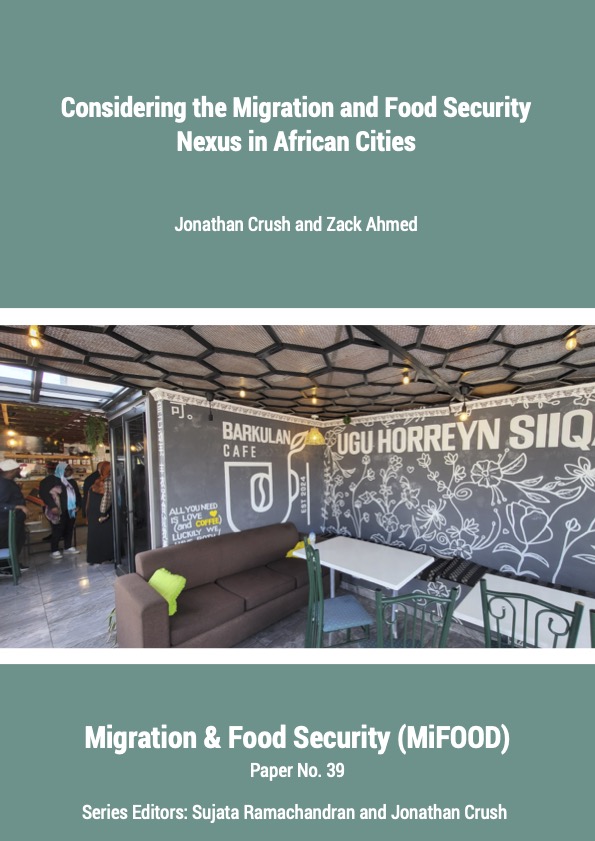International migration and food security are still treated as separate policy and research domains, yet they are deeply intertwined in the African urban context. This paper unbundles the nexus between migration and urban food security by examining how migrants and refugees navigate food systems, cope with vulnerabilities, and deploy resilience strategies to mitigate food insecurity. As rapid urbanization reshapes African cities, migrants are becoming actors in informal food economies, both as consumers and vendors. However, economic exclusion, weak social protection, and precarity often expose them to heightened food insecurity. The paper explores how migrant food security is shaped by urban food environments, informal markets, and social networks. While migrants demonstrate agency in securing food through adaptive coping strategies, structural barriers such as xenophobia, legal restrictions, and economic volatility persist. The role of remittances in migrant food security is also critically examined, with a comparative analysis of Somali migrants in Nairobi, who are primarily remittance recipients, and Zimbabwean migrants in South Africa, who are predominantly remittance senders. By unbundling the migration-food security nexus, this paper highlights the complex, yet essential, role of migration in shaping African urban food systems and livelihoods.

